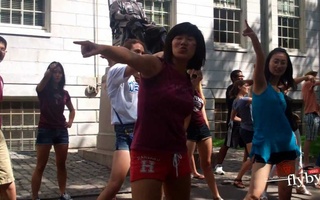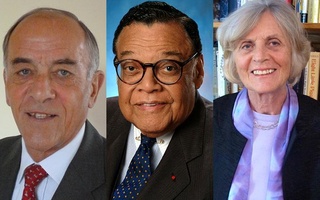For the first time this summer, two new pilot programs modeled after the six-year-old Program for Research in Science and Engineering (PRISE) will offer undergraduates an opportunity to conduct research in business and the social sciences.
But unlike PRISE, which will host about 120 students this summer, the two new programs—Behavioral Laboratory in the Social Sciences (BLISS) and the Program for Research in Markets and Organizations (PRIMO)—will provide programming for only 35 students combined.
BLISS will allow students to work with professors from the psychology department, the Harvard Kennedy School, and the Graduate School of Education, while PRIMO will pair participants with researchers at the Harvard Business School.
“This is very much a part of the larger commitment on the part of the College to make research opportunities available to as many students as possible,” Dean of Undergraduate Education Jay M. Harris said. “Part of what it means to get a solid college education is not just being able to consume knowledge but to learn to be a part of producing it.”
BLISS and PRIMO will provide on-campus housing, evening programming, and a small stipend for students in the programs. But unlike PRISE—which requires students to secure jobs in research labs—in this pilot year BLISS and PRIMO administrators have already selected the projects that students will be able to participate in.
“Given the size of the pilot, what we wanted to do was make sure that we had some kind of approach that facilitated a good working relationship with the faculty and the students and also gave the project a sense of breadth,” Gregory A. Llacer, director of the Office for Undergraduate Research Initiatives said, adding that he hopes that funding will allow the programs to expand in future years.
Psychology Professor Susan E. Carey ’64—who will host BLISS students in her lab this summer and has run an undergraduate internship program for the last 15 years—said she thinks it is important for Harvard to provide more opportunities for funding for social science research.
“It’s really to give them a chance to see what the day-to-day texture of scientific work is really like,” Carey said.
For psychology concentrator Jocelyn G. Karlan ’12, the creation of programs such as BLISS help ease the pressure on students hoping to find lab placements and funding for senior thesis research over the summer.
“I applied to be a proctor just because I was so uncomfortable just relying on the psych department [for housing]. Obviously there’s not an unlimited source of funding,” Karlan said. “With new programs, it should be better this year.”
While the idea for BLISS arose as a natural counterpart to PRISE for College administrators, the impetus for PRIMO came from business school professors who hoped to spread interest in research among undergraduates who typically look to HBS for MBA programs, according to Llacer.
HBS Professor Sunil Gupta, who will host PRIMO participants working on digital revolution and social media projects, agreed that exposing students to research is an important goal of the program.
“We want to excite them on an intellectual basis,” Gupta said. “We can always use bright people in this profession.”
The application deadline for BLISS and PRIMO is Feb. 28.
—Staff writer Stephanie B. Garlock can be reached at sgarlock@college.harvard.edu.
Read more in News
Donations Fall in FY 2010Recommended Articles
-
SurPRISECAMBRIDGE, Mass. — As one of many Harvard students who remained in Cambridge this summer (woot woot, job market!), I
-
College Prepares New Summer ProgramStarting in 2011, social science concentrators conducting research over the summer will likely be able to stay on campus as part of a new program.
-
 Undergraduate Researchers Flash Mob in Harvard Yard
Undergraduate Researchers Flash Mob in Harvard Yard -
College Expands Summer Research ProgramsAfter successful pilot programs last summer, the College’s two new summer research programs have expanded their undergraduate research opportunities in the social sciences and business for the summer of 2012.
-
 After Distinguished Careers at University and Beyond, Three Earn Harvard Medals
After Distinguished Careers at University and Beyond, Three Earn Harvard Medals













